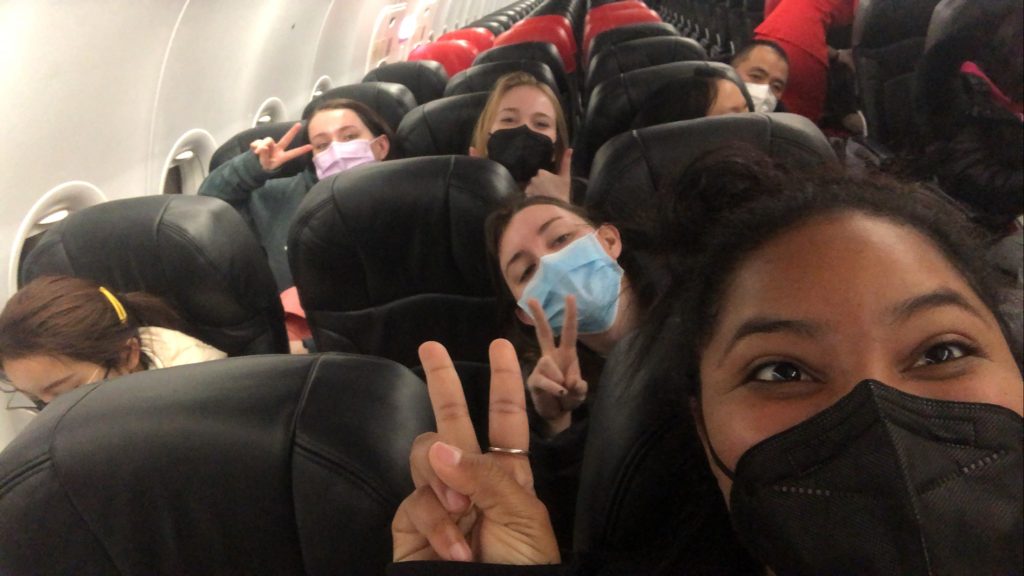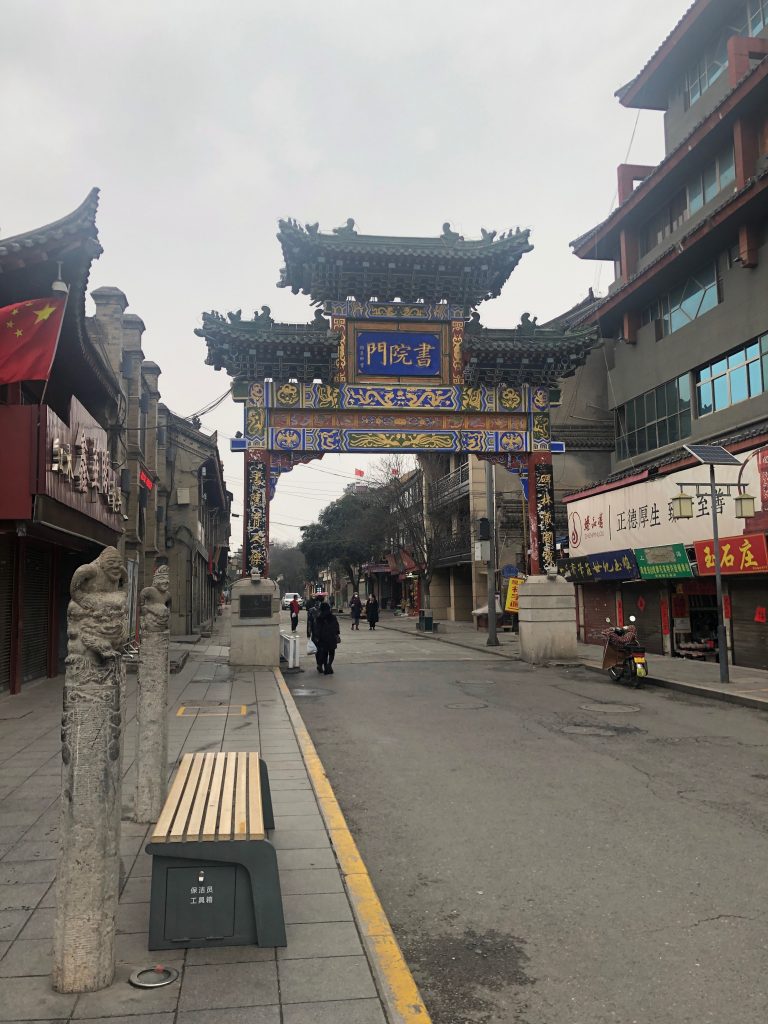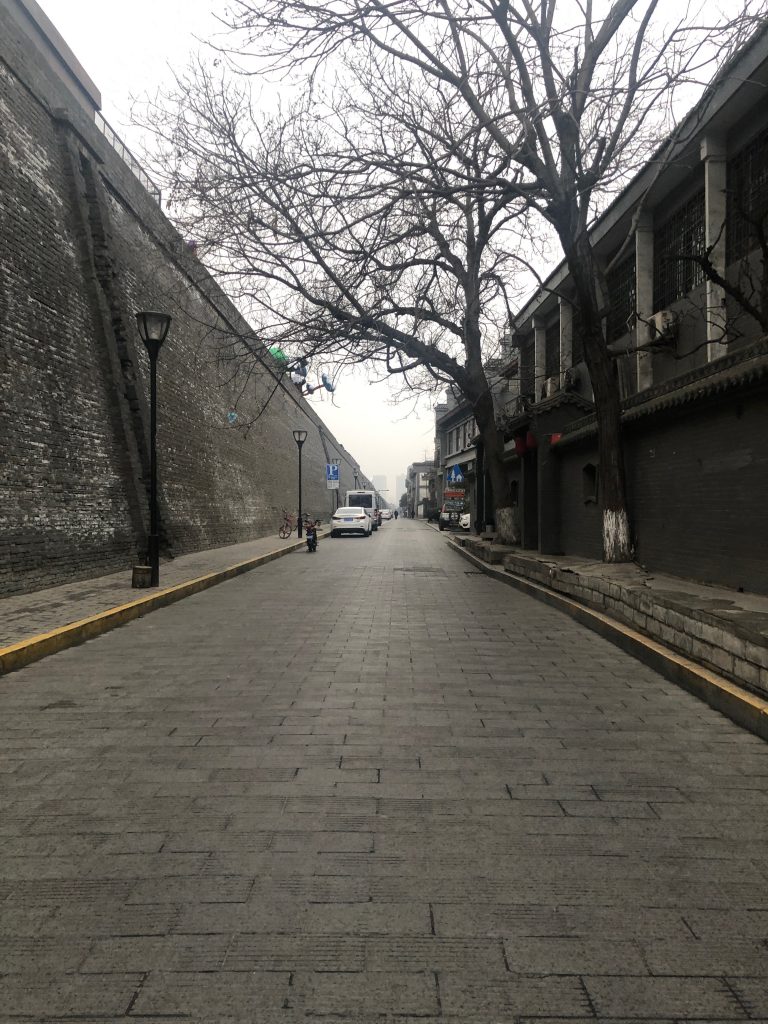
Arguably one of the worst global health crises in the 21st century, there are currently over 80,000 confirmed cases of the Coronavirus worldwide. While vast regions in China, Korea, Japan and even Italy are being shut down in an effort to contain the spread of the virus, here in the Midwest, much of the news about Coronavirus has become background noise.
In fact, even the most well intentioned of us are struggling to keep up with the emergence of new epicenters, fear mongering and economic consequences. But for William Jewell College alumna Kellsie Herrmann (‘19), the Coronavirus has been all too real.
After graduating last May, Herrmann accepted a volunteer position with the Peace Corps and committed to spending two years in Chongqing, China teaching English and American culture to college students.
During her first eight months on the ground, Herrmann enjoyed getting to know local customs and trying local foods, as well as seizing the opportunity to travel through China and other Asian countries.
However, 2020 has proven tumultuous. With very little warning, the Peace Corps volunteers in China were sent back to the United States, and Herrmann’s time in the country was cut short.
In mid-January, during annual In-Service Training, volunteers received two startling announcements. First, the Peace Corps headquarters had decided to “graduate” the China program, meaning they intended to phase out the program over the next 1.5 years, officially ending service in China in 2021. Second, there was a weird new virus in Wuhan, a city in the Hubei province.
At the time, Peace Corps volunteers didn’t spend much time dwelling on the Wuhan virus, and the news of the program’s “graduation” was much more devastating. Volunteers had become closely attached to the program and were committed to the mission of building authentic relationships between Chinese and U.S. citizens.
As the outbreak began during school-holidays, Herrmann’s day-to-day life was minimally impacted, and the threat of the virus hardly felt real.
“I just…wore a mask when I went out, used more germX […] no restaurants were open,” Herrmann said. “In Xi’an there’s this big muslim food street, and it’s super famous. It was open the first day, but not at all busy, and the next day it was closed down.”
Yet for Chinese people who are entirely reliant on the local economy and don’t have the safety net of the U.S. government – like the Peace Corps volunteers – the effects of the virus were more immediately devastating.
“Stores were closing, their businesses… they couldn’t open them, or didn’t open them,” Herrmann said. “[Many of them] didn’t leave their house, still don’t. School has been pushed back until probably March, usually it’s started already.”.
Despite rumors, Herrmann and the other volunteers found solace in the fact that they would be permitted to finish out their term and remain in China until the summer of 2021.
Just weeks later, the Peace Corps team were again met with startling news. As the Coronavirus continued to spread, all volunteers in China were to be evacuated to Bangkok, Thailand to the regional Peace Corps office. Initially this was believed to be a temporary measure, but within three days in Thailand, Herrmann and her team were told they would be sent back to the U.S. by the end of the week.
“People who are more pessimistic, like me, thought it was going to happen…” said Herrmann. “But others, they were still trying to think positive.”
In the past – namely during the SARs pandemic – the Peace Corps simply suspended the service of volunteers for approximately 1.5 years and then resumed operations in China. That was the timeline Herrmann had in mind, so the rapid decision to close the volunteers’ service was shocking for even the pessimists of the group.
“Three days after everyone had consolidated in Bangkok they did a video conference with our country director, who was still in China, and he was like ‘yeah, we are going to go ahead and close your service’ […] ‘this is now a C.O.S. [Close of Service] conference,’” recalled Herrmann. “They helped [us] with our resumes, they tried to help us figure out how to tell our Peace Corps story for future employers, but also for friends and family. There was a lot of reverse culture shock, especially for us because things were so sudden.”

Herrmann, who was already in Thailand traveling with a group of friends when they received the call to consolidate in Bangkok, reflects on being completely torn from the work she was doing.
“It’s tough, we didn’t get to say goodbye [and] there’s no closure.” said Herrmann. “All of my stuff – my computer, my clothes – is still in China […] I probably won’t see that for five to six months.”
For Herrmann, while the sudden end to her service in China has been uprooting, she reflected that for the people still on the ground the impacts have been immeasurable.
“The disruption that Chinese people have, and still are, going through is outrageous,” Herrmann said. “People in America can’t really relate because we’ve never been told: ‘don’t leave your house, there isn’t any food available, if you do leave your house wear a mask. People think of it in terms of the numbers, like the amount of people who are infected or who died. When in reality, yes that’s bad and important, but it’s like people’s lives – they can’t work, they can’t take care of their family, they can’t go to school… they’re sitting at home, in tiny little apartments, for days and days and days. I can’t imagine how terrible that is [and] there’s no end in sight.”
For Herrmann, the people she left behind are the people she’s thinking about as the Coronavirus contains to spread.
“I think about my students and my colleagues a lot, because…I could leave and they can’t,” she said.
As of Feb. 27, over 83,000 cases of the Coronavirus have been confirmed worldwide. Of those cases, 2,856 people have died and 36,424 have been declared completely recovered from the virus. Updates on cases recorded can be found through the online tracker provided by John Hopkins university.


